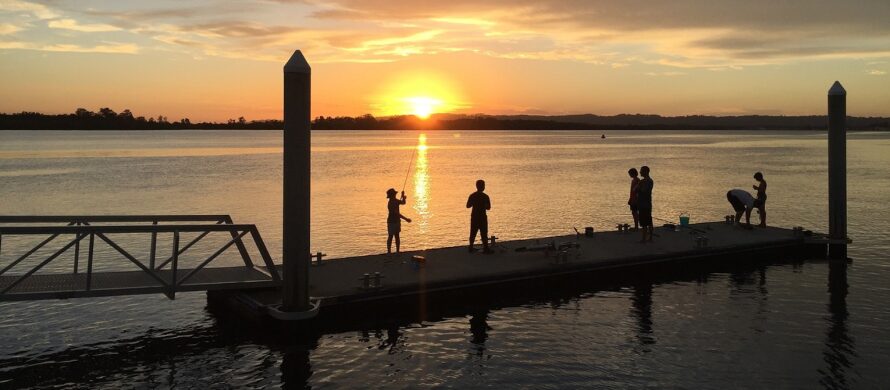At a glance
- GDA2020 became the standard for the exchange of geographic data between State and Local Governments in Queensland, Australia from 1 July 2020.
- COSOL’s regional Council client moved swiftly to eliminate double-handling, uncertainty and errors and is one of the first Councils in Australia to complete the transition.
- The change was achieved with no unscheduled downtime and minimal end-user impact
This South East Queensland regional council serves a community of more than 300,000 people in one of the fastest-growing regions in Australia. The council is responsible for a $5.5 billion asset base with over 4,000 kilometres of roads and 130 kilometres of coastline.
The Council uses the Esri suite, FME and other geospatial tools to present, manage and maintain their GIS data. This ranges from location data integrated with asset management systems and processes to public-facing web map services such as disaster alerts and sports and recreation information.
The Challenge
Australia sits on the fastest moving tectonic plate in the world. Our continent moves approximately 7cm each year to the north-east.
Most location references in Australia use GDA94, a latitude and longitude coordinates grid established 20 years ago that moves with the drift of the continent. However, satellite positioning systems base their coordinates on a framework fixed to the centre of the Earth. With the shift over time, a discrepancy of up to 1.8m has emerged between recorded locations and the technologies we use to navigate to them.
GDA2020 became the national geodetic datum for Australia in December 2017 to address this issue and bring the country’s national coordinates into line with global satellite positioning systems.
The Department of Natural Resources, Mines and Energy (DNRME) represents Queensland as a participating member of the Intergovernmental Committee on Surveying and Mapping (ICSM), and is supporting public and private sector organisations across the state in implementing the change to GDA2020. All Queensland councils work closely with DNRME on the exchange of foundation spatial data, such as street addressing, property boundaries and land use data.
As required under state legislation, DNRME began conducting these exchanges using GDA2020 on 1 July 2020. Although DNRME data products will also be supported in GDA94 until 2022, Clarita’s local government client was keen to align their transition with the Queensland State Government’s timeframe in order to eliminate the double-handling, uncertainty and errors that would otherwise have been inevitable.
Council’s GIS environment is relatively complex. It includes an ArcGIS 10.6.1 federated enterprise environment with multiple ArcGIS Server sites, geodatabases with replicas, topologies, relationships, attachments and FME data processing scripts. The data structure includes:
- 3 x SQL Geodatabases
- 825 data sets (approx. 15M records in total)
- 97 datasets with attachments
It is a dynamic environment with regular schema changes and data editing and maintenance occurring as part of the BAU operations.
The Solution
Council needed to perform the transition with minimal downtime, maintain the same production infrastructure, provide training, and advice and tools for transitioning other data types such as imagery and Lidar.
As a local provider with proven past performance and a unique combination of geospatial and asset management expertise, COSOL won the tender to perform the transition of corporate data to GDA2020.
Working collaboratively within the extended project team, COSOL identified the best testing and cutover plan. The scope of work included:
- Design and confirm implementation plan
- Setup temporary/transition SQL geodatabases
- Setting up tools and process to transform data to GDA2020
- Testing to ensure processes and timings worked as expected
- Production cutover including elevated support and training
The Council’s project coordinator highlights extensive workshopping and testing of proposed alternatives before committing to the final transition plan as the key success factor. There were two full test runs in a development environment to help pinpoint the approach that would minimise the change management and bring all web map services and connected applications seamlessly to the new standard.
Although the detailed planning and testing was effective in identifying and resolving problems in the transition plan, there was still a number of complexities to manage, including parallel asset management system upgrades, regular database schema changes and COVID-19.
The council transitioned to GDA2020 as their corporate standard in May 2020. Using a combination of technical tools and processes COSOL was able to transform all corporate datasets to GDA2020 with no unscheduled downtime or interruption to Council services.
The Outcome
Since its launch into production, all GIS services have been operating smoothly on the GDA2020 standard, with no technical problems or impact to users.
The transition approach delivered on each of Council’s project objectives:
- Confidence that one common standard is used to define all Council’s location data
- Using the same production infrastructure has allowed council to reduce the change management overhead and potential infrastructure costs for minimal end user impact
- Working with a long-term, trusted partner provides the assurance that expert support will be available if required to address any post implementation issues
- Council is compliant with the QLD State Government’s timeframe for GDA2020 legislation compliance
Improved data governance was among the additional benefits identified and incorporated into the scope of work over the course of the project. By grasping opportunities to generate greater returns from the transition project, Council has also realised unexpected benefits in:
- Establishing an archiving solution for corporate GIS databases
- Savings in image storage
- Key database upgrades
- Improved Extract, Transform, Load (ETL) processes
This is one of the first councils in Australia to adopt GDA2020, and as a result are now well positioned for the next phase of GDA2020, the implementation of the Australian Terrestrial Reference Frame (ATRF).

